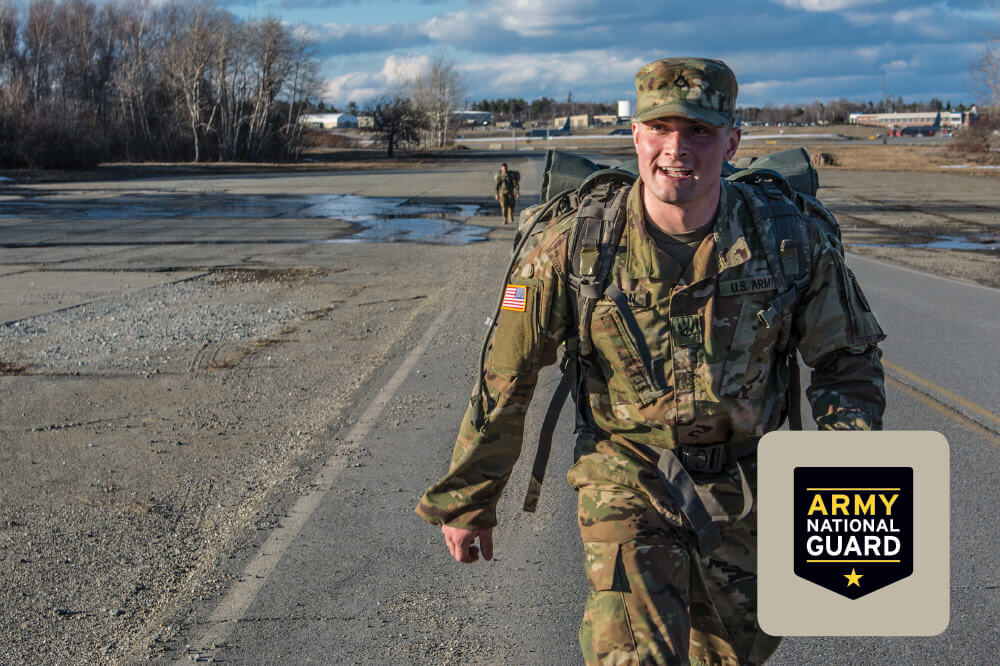Maintaining Medical Readiness with Immunizations
Immunization against disease is an important component of maintaining medical readiness in advance of worldwide deployment.
Medical Protection System (MEDPROS) provides for the recording, reporting and tracking of medical readiness information for Soldiers, units and task forces. This includes immunization records for documentation of past vaccinations. If no documentation is on file for an individual Soldier, it may be assumed that Soldier was never vaccinated and their deployable status may be affected.
The Reserve Health Readiness Program (RHRP) offers Guard Soldiers immunizations both in-clinic or through group events. While a group event must be initiated by a unit’s command, Soldiers may schedule in-clinic appointments with an RHRP provider at any time by using the Automated Voucher System (AVS).
Before receiving vaccinations, Soldiers should inform the RHRP provider if they are pregnant, think they may be pregnant or if they are allergic to any medications. Soldiers may also be required to bring medical and shot records to appointments for immunizations.
For more information on the immunization process, visit Health.mil/Military-Health-Topics/Health-Readiness. From the left-hand navigation bar, select Reserve Health Readiness Program. From the resulting drop-down menu, select Army National Guard, then Service Member Responsibilities.
The following are standard required immunizations:
Meningococcal Vaccine
A vaccine required every 5 years for all Soldiers deploying to specific regions. Meningococcal disease – spread from the throat secretions of infected persons – is one cause of bacterial meningitis, which can also lead to blood infections.
Potential side effects: Redness or pain at the site where the shot was given lasting 1 to 2 days, fever and allergic reaction.
Hepatitis A Vaccine
A series of 2 injections given at least 6 months apart to protect from contracting a serious liver disease caused by the hepatitis A virus, which is usually spread by close personal contact with an infected person and sometimes by eating food or drinking water containing the hepatitis A virus. Hepatitis A vaccine is required prior to deployment to certain areas of the world.
Potential side effects: Soreness where the shot was given, headache, loss of appetite and tiredness. These problems may occur 3 to 5 days after vaccination and last for 1 or 2 days.
Hepatitis B Vaccine
A series of 3 injections, given at months 0, 1 and 6, to protect from contracting hepatitis B – a serious disease causing inflammation and damage to the liver that may lead to cirrhosis of the liver, chronic liver disease and liver cancer. Hepatitis B Virus is spread through contact with the blood and body fluids of an infected person. Required for Soldiers in specific MOSs and deployment to specific areas of the world.
Potential side effects: Soreness where the shot was given, mild fever, allergic reaction.
Tuberculosis (TB) Screening
All deploying Soldiers must have a TB test within 12 months of deploying. Soldiers should inform the RHRP provider of any positive TB tests from the past. Non-deploying, non-medical personnel should be tested every 5 years. Medical personnel are tested annually.
TB is a disease caused by bacteria that can attack any part of the body, but usually attacks the lungs. TB is airborne and spreads from one person to another. A TB skin test is the only method to determine if a person has a TB infection.
Measles, Mumps and Rubella (MMR) Vaccine
Measles, mumps and rubella are three separate illnesses caused by three different viruses. These are airborne diseases that spread from person to person. Every Soldier must have documented proof of receiving a measles vaccination upon entry into the military or at any time since entering the military. If there is no documentation, a single booster of MMR is given.
Potential side effects: Fever, mild rash, swelling of glands, temporary pain and stiffness in joints, and allergic reaction.
Typhoid Vaccine
A vaccine required for all Soldiers deploying to countries where typhoid is common. The vaccine is available in oral and injectable forms. The manufacturer and the dosage form determine the number of dosages needed.
Typhoid fever is a life-threatening illness cause by the Salmonella Typhi bacteria, which lives only in humans. Typhoid fever is passed by eating food or drinking beverages that have been handled by an infected person or prepared using water that had been contaminated with the bacteria.
Potential side effects: Soreness, redness and swelling where the shot was given, low fever, nausea, diarrhea, stomach pain, headache.
Tetanus-Diphtheria Vaccine
A vaccine required for all Soldiers every 10 years throughout life to prevent tetanus (lockjaw) and diphtheria. Tetanus – caused by a germ that enters the body through a cut or wound – can cause the inability to open the mouth or swallow. Diphtheria – spread by a germ passed from an infected person through the nose or throat of others – can cause breathing problems, heart failure, paralysis and death.
Potential side effects: Soreness, redness and swelling where the shot was given and allergic reaction. Side effects may occur within hours or a day after the vaccine and last 1 to 2 days.
Influenza Vaccine
A yearly vaccine required for all Soldiers to protect from a virus that spreads from the nose or throat of the infected persons to others. The “influenza season” in the United States is from November through April each year. The viruses that cause influenza frequently mutate. For this reason, the influenza vaccine is updated each year. Protection develops about 2 weeks after the shot and may last up to a year.
Potential side effects: Soreness, redness or swelling where the shot was given, fever and aches. If these problems occur, they usually last for 1 to 2 days.
The viruses in the vaccine are killed. You cannot get influenza from the vaccine.
Inactivated Polio Vaccine
Soldiers are required to receive a total of 3 polio vaccines. Those who have never been vaccinated will require all three. Those who have received 1 or 2 will be required to receive additional vaccines for a total of three. Those who have had 3 or more vaccines in the past are required to receive a booster dose.
Polio is a disease caused by a virus that enters the body through the mouth. Polio may or may not cause serious illness including paralysis or death. Though Polio is no longer common in the United States, the disease is still common in other parts of the world.
Potential side effects: Soreness where the shot was given, allergic reaction.
Sources:
U.S. Army Medical Department, Carl R. Darnall Army Medical Center – www.CRDAMC.AMEDD.army.mil/soldiers/shots.aspx
BY STAFF WRITER Ruth Ann Replogle



